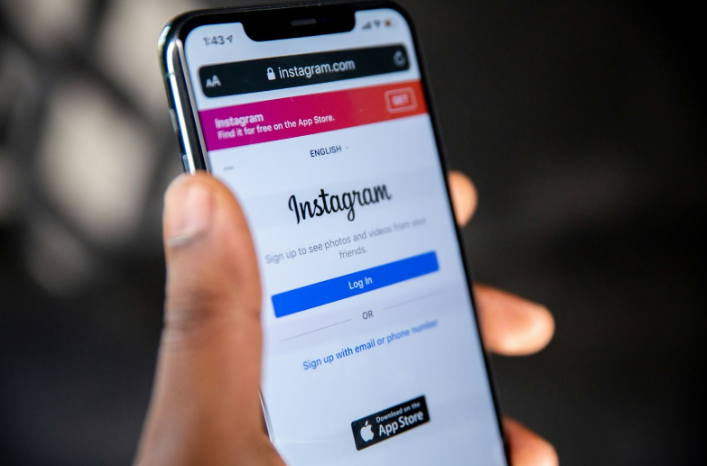Social media scams, such as those on Instagram, are becoming more and more common. In fact, 16.7% of respondents in a GoodFirms survey reported being victims of investment scams that started through their social media accounts. However, this can be prevented if warning signs are identified in time.
A common issue right now is Chinese scams on Instagram. In this post, you will learn what an Instagram scam is and how to avoid it. We will share a real-life case, and finally, you will learn what to do if you find yourself in a potential scam.
Need support after a scam? Join our community today.
What are Instagram Scams?
Instagram scams are fraud schemes that scammers use to exploit users on the platform, often trying to steal money or personal information. These scams come in various forms and can be quite persuasive, making it challenging for victims to recognize them as fraudulent. Instagram has recognized these types of scams:
- Job Offers Scams: These promise quick money-making opportunities but ask you to share your banking information for “direct payment” which can lead to identity theft or unauthorized charges.
- False Investment Opportunities: Scammers trick you into investing a small amount of money, promising returns. Cash-flipping scams, where they claim to multiply your money, are especially common.
- Romance Scams: These involve scammers to build a relationship with you through charm and flirtation, only to eventually ask for money, often citing a sudden emergency or financial hardship.
- Fake Brand Sponsorships: Often targeting aspiring influencers, scammers claim to be as reputable brands offering collaboration deals, but they actually steal your banking information under the excuse of setting up payments.
- Fake Lottery Wins: You receive messages claiming you’ve won a prize, but to claim it, you need to pay a fee upfront. Of course, the prize never shows up.
- Phishing Emails: These look like official messages from Instagram, warning about account violations or suspicious activity. They include a fake link to “log in” which captures your credentials for fraudulent purposes.
- Giveaway Scams: These claim you’ve won a prize but ask you to share personal details, pay a fee, or log into a suspicious website to claim it. In reality, there’s no prize—just a trick to steal your information.
- Instant Loan Schemes: These promise quick cash loans but ask for an advance fee. Once paid, the scammers disappear without delivering the loan.
- Paid Subscription Scams: These schemes trick you into paying for discounted or free access to services like streaming music or movies, only for you to realize that no such access exists.
How to Avoid a Chinese Instagram Scam?
To avoid a Chinese Instagram scam, it’s important to stay alert and know how to recognize the signs. According to GoodFirms, cognitive abilities, prudence, time spent on social media, knowledge of security measures, and online habits can help prevent social media users from becoming victims of scams. Some warning signs include:
1. Recognize the Red Flags
Be cautious about unsolicited messages from strangers offering investment opportunities, romantic interest, or asking for personal information. Scammers often use these tactics to build trust before requesting money or sensitive details.
2. Verify Authenticity
Before interacting with any account that claims to be a brand or offers a job, do your research. Check their followers, posts, and any listed websites to ensure they are legitimate. Look for inconsistencies in their story or actions.
3. Use an Identity Theft Monitoring Service
Consider using services like Kaspersky Security Cloud or IdentityForce, which can help you keep track of unusual activity across your accounts. These services monitor your credit, bank accounts, and personal information for any signs of unauthorized activity.
4. Use Strong and Unique Passwords
Make sure each of your online accounts has a distinct password that is hard to guess. Opt for passphrases or random character strings to make them more secure. Consider using a password manager, like Kaspersky Password Manager, to safely store and organize your new passwords.
5. Monitor Your Bank Accounts and Cards
Check your bank statements often for unfamiliar charges. Scammers may make small purchases that are easy to miss. If you spot anything strange, contact your bank or credit card company right away to stop any further charges.
Have questions about dealing with scams? Contact us for support.
A Real Chinese Instagram Scam Case: Pig Butchering Scam
It all started with a direct message from a stranger on Instagram, “Jessica,” who wanted to befriend a tech journalist. He initially suspected it might be a scam but couldn’t identify what kind right away. The BBC later reported the case.
Jessica claimed to be from Chicago and spent weeks to build a connection through friendly chats and mild flirting with the journalist. They talked about everyday topics like vacations and fitness, and she even sent photos and videos of her life, hinting that she was open to a romantic relationship.
A Tricky Friendship Turned Crypto Scam
Later on, Jessica shared a screenshot of her supposed cryptocurrency wallet showing $47,000, inspiring the journalist to join her in the investment. This scam, known as “pig butchering” involves building a fake romantic relationship with a target through social media and then persuading them to invest in fraudulent opportunities, often related to cryptocurrencies.
Curious about how the scam worked, the journalist decided to invest $200 in Jessica’s “plan”. She insisted that he accept certain conditions, like calling her “Miss Queen” and following all her instructions. She taught him how to buy cryptocurrency on Coinbase and transfer it to an app called the DeFi Wallet.
How Was the Scam Discovered?
After a few days, the platform showed that the initial $200 investment had supposedly doubled, and Jessica pressured the journalist to invest more. However, the journalist confronted her, revealing that he was from the BBC and aware of the scam.
At that point, Jessica admitted she was stuck in Dubai, saying she was being threatened and forced to work as a scammer. She asked the journalist for $500, claiming it would help her get out, but blocked him when he refused. The journalist reported the case to fraud agencies, exposing a “pig butchering” scam network based in China.
What to Do If You Find a Scam on Instagram?
If you come across a scam on Instagram, the platform has a section dedicated to reporting scams and other violations of its Community Guidelines. Here’s how to report suspicious content or profiles:
- Report the Post or Profile: Instagram allows you to report posts, stories, comments, and even profiles if they don’t comply with their guidelines. The reasons for reporting include scams, fraud, false information, and other harmful activities.
- Select the Reason for Reporting: When submitting a report, you’ll be presented with a list of options to choose from, like “Scam or fraud,” “False information,” or “Bullying or harassment. Simply select the most relevant option to ensure Instagram reviews your report correctly.
- Report Messages and Comments: You can also report messages or comments if you believe they’re part of a scam attempt. This helps prevent scammers from using the platform to deceive others.
Protect Yourself from Chinese Scams with CDN
To protect yourself from Chinese scams on Instagram, it’s important to not believe everything you see on this social network. In fact, 53.3% of respondents surveyed by GoodFirms reported discovering an influencer on social media with a huge following who promotes fraudulent offers, fake products, or risky financial services.
Because these types of scams are difficult to detect—especially since they can happen across all social media platforms—many people fall for them and lose their money. At Cryptoscam Defense Network, we are committed to offer resources like this blog as well as another where we discuss Facebook Deletion Scams.
We Want to Hear From You!
Fraud recovery is hard, but you don’t have to do it alone. Our community is here to help you share, learn, and protect yourself from future frauds.
Why Join Us?
- Community support: Share your experiences with people who understand.
- Useful resources: Learn from our tools and guides to prevent fraud.
- Safe space: A welcoming place to share your story and receive support.
Find the help you need. Join our Facebook group or contact us directly.
Be a part of the change. Your story matters.
Frequently Asked Questions (FAQs) about Chinese Scams Instagram
Can I Recover My Money after Being Scammed on Instagram?
Recovering money after being scammed can be difficult, but it’s important to report the scam to Instagram, your bank, and local authorities. Some financial institutions may be able to help if the fraud is reported quickly, like the Federal Trade Commission (FTC) or the Consumer Financial Protection Bureau (CFPB).
How do I Know if an Instagram Account is Fake?
When trying to identify a potential scam on Instagram, there are several red flags to watch out for:
- Unsolicited Messages: Be cautious if you receive direct messages from people you don’t know, especially if they seem overly friendly or eager to start a conversation.
- Investment Offers That Seem Too Good to Be True: One common tactic is offering opportunities that promise high returns with little to no risk. If someone claims you can easily double your money through cryptocurrency, forex trading, or any investment, it’s likely a scam.
- Profiles That Try to Build a Personal Connection Quickly: Be wary of profiles that seem overly interested in getting to know you right away, especially if they start discussing personal topics or try to build a romantic relationship.
- Unverified or Incomplete Profiles: Check for profiles that lack a history or followers, have few posts, or use generic photos. Scammers often create accounts quickly, with minimal effort to emerge legitimate.
- Pressure to Act Fast: Scammers often create a sense of urgency, claiming that an investment opportunity is limited-time or that you need to act quickly to avoid losing out.
Photos via Unsplash.







